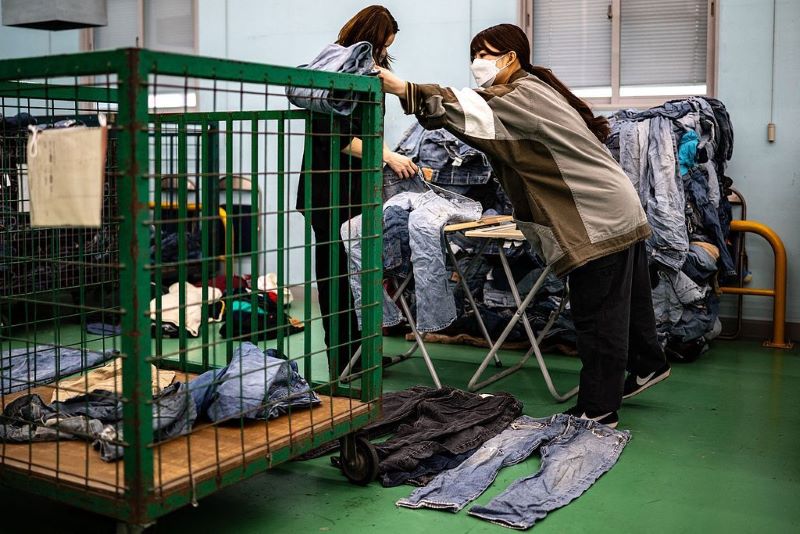In recent years, the cultural attitude toward personal belongings in Japan has seen a profound shift, particularly among younger generations. While older Japanese have long adhered to the minimalist philosophy of danshari—the art of decluttering through cutting ties with unnecessary possessions—young people are taking a markedly different approach. According to the latest studies and reports, including a recent survey by Japan’s largest secondhand e-commerce platform Mercari, today’s youth are increasingly viewing personal items as resources with resale value, rather than simply clutter to be discarded.
This evolving mindset not only reflects changing consumer behavior but also signals broader societal trends, including environmental consciousness, economic practicality, and a reevaluation of the stigma surrounding secondhand goods. In this article, we explore the data, cultural influences, and implications of this shift.
Decluttering vs. Resale: Generational Differences
The Mercari survey, conducted in October 2023, polled 2,400 respondents across different age groups, ranging from teenagers to individuals in their 60s. Participants were asked to inventory and assess the value of their possessions, such as clothing and household appliances. The findings revealed a stark generational divide in how personal belongings are treated.
Older individuals in their 60s were found to own significantly more items, with an average of 528.2 personal possessions, compared to just 239.2 items owned by younger individuals aged 10 to 29. Furthermore, 20.7% of possessions owned by the elderly were items that had not been used in the past year, while this figure was only 10.3% among the younger demographic.
In terms of disposal habits, older people were far more likely to throw items away. Approximately 78.3% of respondents in their 60s reported discarding unused possessions in the past three years. In contrast, only 53.6% of young people had done the same. This indicates a growing tendency among younger generations to seek alternatives to outright disposal—such as selling, donating, or repurposing items.
The Secondhand Boom: A Cultural Reawakening
The rise of secondhand marketplaces and cultural shifts in perception have been key drivers behind this trend. Once viewed as embarrassing or shameful, buying and selling secondhand items is now considered both practical and fashionable. As reported by J-CAST News, secondhand items, particularly vintage clothing, have become highly sought-after, with some rare or retro pieces fetching prices several times higher than their original retail value.
Neighborhoods in Tokyo such as Harajuku, Shimokitazawa, and Koenji have become hubs for the “secondhand chic” lifestyle. These areas are known for their thrift shops and flea markets, which attract young shoppers eager to find unique, stylish, and sustainable clothing. In addition, flea markets have grown in popularity across Japan, with well-known venues like Shinjuku Central Park, Shinagawa Intercity, and Nippori Station offering large-scale events where people can buy and sell pre-loved items.
A leader from the “Recycle Movement Citizens’ Association,” which launched Tokyo’s first flea markets over 30 years ago, noted the dramatic cultural change. “Back then, Japan was in an era of rapid economic growth, and trading secondhand goods was often seen as shameful,” the representative explained. “Today’s youth have shifted that mindset. Flea markets are seen as fun and sustainable—an opportunity to find bargains while contributing to environmental conservation.”
Young Consumers: Resale Value as a Priority
This paradigm shift is particularly evident among Generation Z. A 2023 Mercari consumer behavior study found that young people are more likely than their older counterparts to consider the resale potential of items when making purchases. Rather than simply buying goods for immediate use, they evaluate their potential as exchangeable assets.
This habit has its roots in a more pragmatic and resource-conscious lifestyle. Unlike previous generations, who might have been content to accumulate possessions over decades, younger Japanese are inclined to keep only what they need, minimizing excess and waste. “They’re not just being frugal,” said Naoko Kuga, a researcher at the Nissei Institute. “They’re embracing a lifestyle that values circulation and the monetary potential of goods. This approach not only reflects a more sustainable way of living but also accelerates the broader societal shift toward a circular economy.”
This mindset aligns with Japan’s growing emphasis on sustainability and environmental responsibility. By extending the lifespan of products through resale, reuse, or recycling, young people are actively reducing waste and contributing to resource conservation.
The Economic and Environmental Appeal of Secondhand Markets
The growing popularity of secondhand markets offers several benefits for both individuals and society. On a personal level, these platforms allow consumers to recoup some of the value of their purchases, making them more financially sustainable. On a societal level, they contribute to the broader push for sustainability by reducing waste and lowering demand for newly manufactured goods.
The rise of secondhand platforms like Mercari has also democratized access to these markets. By providing a simple and convenient way for individuals to sell their unused possessions, these platforms have encouraged a culture of reuse and resourcefulness. Moreover, they offer a means for people to afford high-quality goods at lower prices, further appealing to the younger generation’s sense of practicality.
This shift also reflects global trends. Around the world, younger consumers are driving demand for secondhand goods as part of a broader rejection of fast fashion and overconsumption. The appeal of thrifting, vintage finds, and “upcycling” reflects a desire for individuality, sustainability, and economic efficiency—values that are increasingly important to today’s youth.













Leave a comment